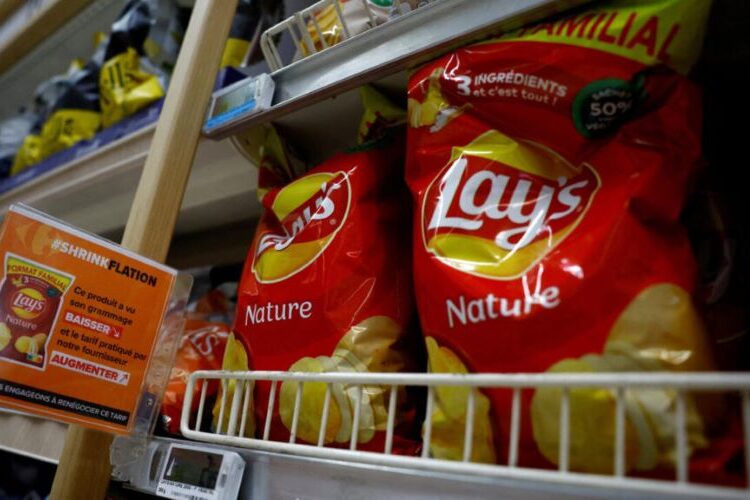French grocery chain Carrefour has started to add warning labels on products that have changed due to “shrinkflation” — a phenomenon where manufacturers reduce the quantities sold per pack rather than increasing prices. By doing so, manufacturers conceal inflating prices from the consumers.
Since Monday, Carrefour has marked 26 products in its stores with the new labels that read: “This product has seen its volume or weight fall and the effective price from the supplier rise.”
The move will impact firms like PepsiCo, Nestle, Unilever, and comes ahead of negotiations between big brands and retailers due to start soon as CNN reports.
Carrefour chief executive, Alexandre Bompard, has piled up pressure on consumer goods companies in recent weeks, accusing them of not cooperating in efforts to cut down prices despite a fall in the cost of raw materials.
Bompard announced the initiative on French television himself. “This way we have the most reliable information possible for consumers because it is unacceptable to do this to consumers,” he said.
Carrefour has also cited examples of products that have reduced in quantities despite the prices going up. One such is Nestle’s infant milk formula marketed as Guigoz, that has gone from a pack size of 900 grams to 830 grams.
Another one is PepsiCo manufactured pack of Doritos that has shrunk by 10 grams while the price per kilo went up 19%.

BFM Business, top French business news channel, obtained a list of products affected by “shrinkflation”. A total of 122 products from major brands, the majority being crisps, mayonnaise, and a variety of other drinks, will be impacted by this move.
According to Stefen Bompais, director of client communications at Carrefour, the move will force brands to rethink their pricing. “Obviously, the aim in stigmatizing these products is to be able to tell manufacturers to rethink their pricing policy,” Bompais said in an interview.
Like many of its European counterparts, France has been dealing with an onset of inflation since the start of 2022. Food prices in particular have soared to unprecedented levels, with inflation reaching an all-time high of 15.90% in March 2023. Since then, the government has been trying to ease the burden on consumers.
The pushback against “Shrinkflation” is headed by the French finance minister, Bruno Le Maire who has previously called it a “disgrace”. In June, Le Maire invited 75 big retailers to his ministry urging them to cut prices. Those meetings have continued since with Le Maire calling out Unilever, Nestlé, and PepsiCo as the companies that were not doing enough to rein in prices.

Carrefour’s decision comes days after the finance minister announced on French TV that manufacturers will be legally obligated to notify consumers of any reduction in product content while retaining or increasing the price.
Carrefour is one the largest retailers in the world by revenue and has close to 12,000 stores worldwide. However, the shrinkflation warnings will only be observed in the company’s 5,700 stores across France.
The retailer could extend warnings to other foods but has no plans of extending the program to other countries.
While many have applauded the move, some notable critics see this as nothing more than a PR stunt since Carrefour itself has been involved in deceiving shoppers through shrinkflation. The strategy also risks damaging relationships between retailers and food firms.
The initiative hits only about 122 products out of 20,000 food references in a supermarket. This is why it is being seen as more of a pressure tactic ahead of the annual negotiations between consumer goods companies and retailers.
The annual negotiations that usually take place at the start of the year have been brought forward to September and will continue till 15 October. Le Maire hopes that the talks will result in price cuts from January.






